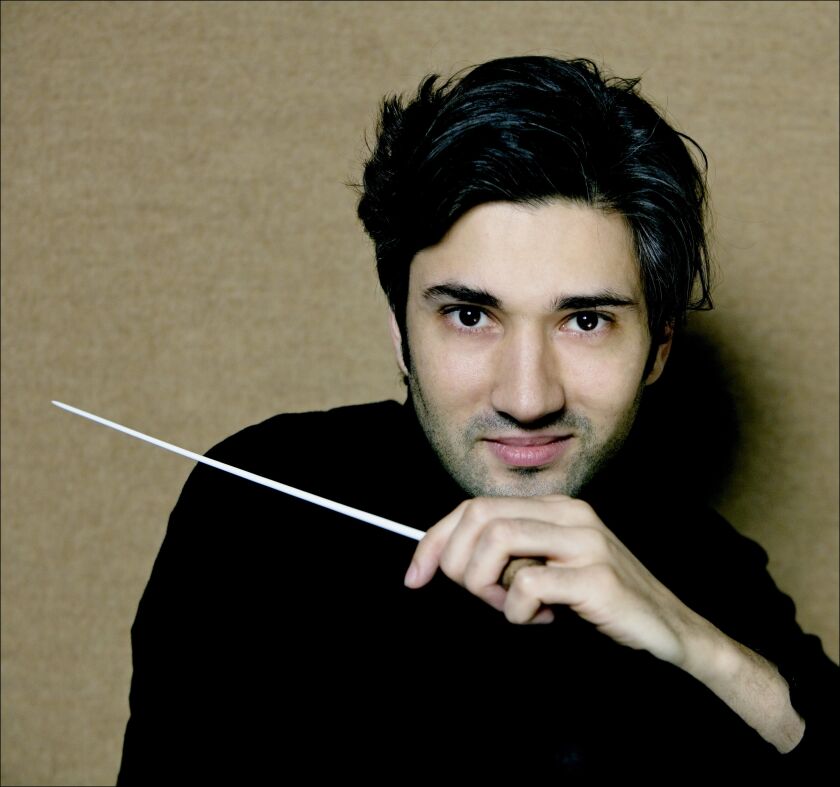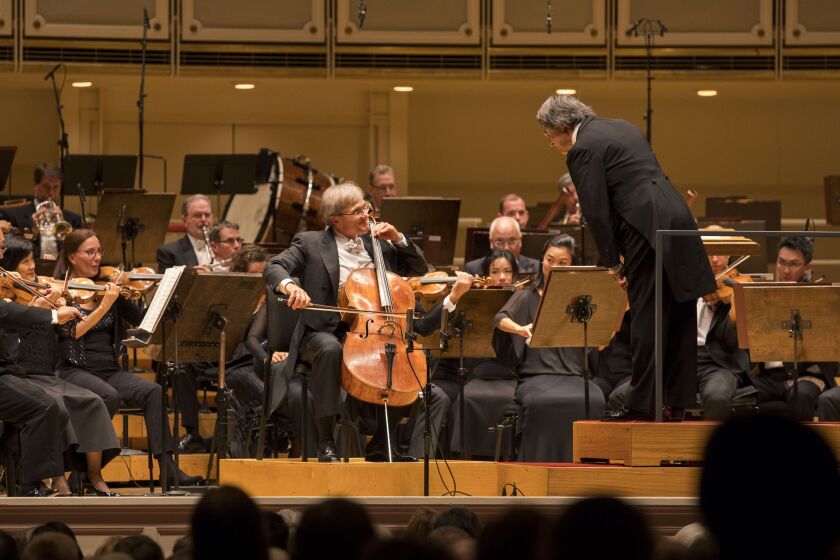All those in search of pure, unadulterated transcendence are urged to head to Symphony Center on Oct. 22 for the last of the three concerts in which the Chicago Symphony Orchestra performs works by Beethoven and Shostakovich under the leadership of the remarkable young conductor David Afkham, and with Emanuel Ax – that unparalleled master of the piano – in a stellar turn. If “real world” events leave you in a state of despair these days, this astonishing display of artistry is guaranteed to restore your faith in civilization, and in what people can do when they are possessed of the gift of divine fire. Hyperbole? Not at all.
Chicago Symphony Orchestra
Highly recommended
When: Oct. 22 at 8 p.m.
Where: Symphony Center,
220 S. Michigan
Tickets: $22 – $222
Info: (312) 294-3000;
Run time: 2 hours and
10 minutes with one intermission
To begin with, there is the sheer glory and impossible beauty of Beethoven’s “Piano Concerto No. 1 in C Major,” and its ravishing interpretation by Ax, whose fingers traverse the keyboard with such fluid ease that it is almost as if he is working an alchemical trick – turning “hammered” notes into a stream of rippling water. The second half of the program features a galvanic performance of Shostakovich’s “Symphony No. 10 in E Minor,” the work of a composer who suffered mightily throughout the Stalinist era in the Soviet Union, and who, upon the death of Stalin in 1953, immediately penned a powerhouse musical chronicle that captured the terror, anguish and enforced quiet of all that had come before, with a final breath of fresh air tinged by an enduring air of uncertainty.
Add to all this the sheer magic of the Chicago Symphony Orchestra these days, plus the revelatory work of Afkham, the 33-year-old guest conductor who grew up in Germany, is now principal conductor of the Spanish National Chorus and Orchestra, and whose future appearances here should be greatly anticipated.
Listen to Ax, who is marking the 40th anniversary of his first appearance with the CSO, and you understand instantly that bravura technique is one thing, but what this pianist does is in an entirely different realm. The Beethoven concerto is a thing of extraordinary beauty, but the fluidity of Ax’s playing, like his astonishing articulation, is phenomenal. At one moment he can summon all the energy and forcefulness Beethoven requires, but he also can sound notes of such exquisite quiet that the audience holds its breath in rapt communal attention. When speed is of the essence, the rapidfire stream of notes just take flight, never losing their essential shape or lyricism. When the tempo slows, every note speaks. And the melodic threads of the concerto unspool with impeccable clarity, but also a sense of surprise.
Ax finds his way deep into the meditative sequences of the concerto, but his playing is so open, so joyful – such a shared experience with the orchestra (towards which he often directs his gaze) and its exceptional woodwinds section – that everyone is enveloped in the rapture of it all. And, after a wildly enthusiastic reception Thursday evening he treated his audience to an encore – an exquisite rendering of Robert Schumann’s dreamy “Des Abends” (“In the Evening”) from “Fantasiestücke,” Op.12.
The Shostakovich is a monumental, dramatic work whose darkly quiet opening conjures the sense of something ominous lurking in the near distance. Throughout there is the sense of looming terrors in the outside world paired with a retreat into an interior world, so the forces of oppression and self-suppression exist in tandem.
Rhythms shift on a dime, as do passages of lyrical and briskly discordant sound. Dance sequences move suddenly from the seductive to a more agitated state of foreboding. There is the constant undertow of the need for an escape, too – with the race into flight and safety signaled by the dynamic entries of the brass and percussion players, the heat of the massing cello and bass section, and the sound of flutes. Fury is followed by calm as strings are plucked, horns are sounded, cymbals clash. Things resolve, yet nothing is ever fully settled.
Afkham – tall, reed thin and handsome, with a notably graceful bearing – is equal parts the precisionist and lyricist, intensely attentive to every section of the orchestra and every shift in the mood of the music. The CSO is a magnificent ensemble to have at one’s command, but Afkham shaped the ferociously difficult Shostakovich in the most thrilling yet subtle ways, and was an ideal partner for Ax with the Beethoven. An unforgettable evening.
NOTE: A few belated words about Maestro Muti’s final fall concert with the CSO last week. It, too, was exceptional, with an exhilarating performance of the rarely heard, wonderfully colorful “Husitska Overture” of Dvorak; Paul Hindemith’s turbulent, bracing, Weimar-era work “Concert Music for String Orchestra and Brass”; and Robert Schumann’s lushly emotional “Cello Concerto in A Minor,” played with great beauty and a golden tone by one of the CSO’s own – principal cellist John Sharp, who makes his rare 17th century cello made by Joseph Guarnerius truly sing. The concert drew to a close with a deliciously theatrical, often playful rendering of Mussorgsky’s “Pictures from an Exhibition” (as orchestrated by Maurice Ravel), that truly brought to life the many different works of art by Victor Hartmann that inspired it.







